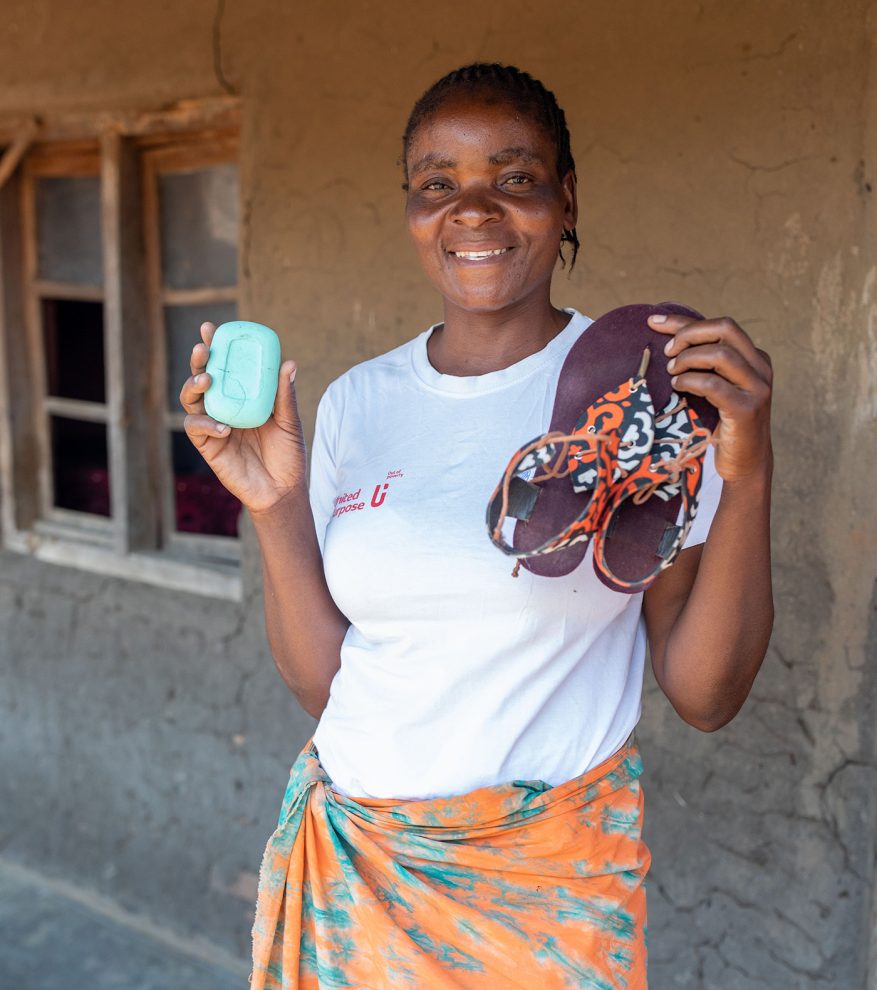Manesi Samalani from Malawi, pictured.
The clue is in the name… and the ASPIRE project has enabled hundreds of women in Malawi to make their small business dreams come true.
Women like Manesi Samalina, who is amongst a total of 2,700 Malawians who participated in the project – and in her case used her handicraft skills to produce clothing and footwear that has provided her with the foundations of a small business.
Trained and supported by ASPIRE (Achieving Sustainable Poverty Reduction through Increased Inclusive Resilience and Empowerment), Manesi invested in the necessary equipment and materials, and started to manufacture shoes and clothing that she sells to others.
“In the past we didn’t have a proper house where the family could sleep, and I often had to do manual work to generate an income and put food on the table,” she recalls. “Today, we are eating better. I now have seven goats, and I’m able to afford the school fees for my children.”
Grenina Mbati was also part of the ASPIRE, but in joining a community grain bank where she could bulk and sell produce, and could also access fertilisers to increase her farming yields.
In total, ASPIRE worked with more than 2,700 households in Malawi’s central region. Project measures included the creation of community grain banks, local irrigation schemes and activities, all that have improved access to inputs. Alongside support for enterprise development, ASPIRE increased the percentage of participants with a year-round supply of food from 44% up to 61%, according to project manager Blessings Kapombo.
ASPIRE also gave communities a voice. The programme improved links between local communities and government-run services. Village councils were able to lobby for improvements to water, roads, and other local services.
An extension to ASPIRE launched in 2022. The aim of it is to to support 35,000 households, including five farming cooperatives and 20 productive groups with 5000 members in the Dedza District of Malawi’s Central Region.

